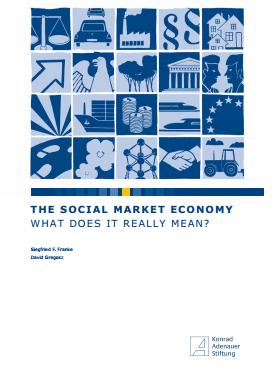Blanchard, O., Ostry, J. and Ghosh, A., (2013), “Overcoming the obstacles to international macro policy coordination is hard”, VoxEU, 20 December. The world has just been through a period of unprecedented macro policy activism. More is set to come as central banks exit unconventional policies, governments fix their fiscal positions, and financial regulations are reformed. These national policies have undeniable international spillovers. This column argues that the setting is ripe …Read More
The Fox and the ECB
Davies, H., (2013), “The Fox and the ECB”, Project Syndicate, 19 December. A French business magazine recently ranked IMF Managing Director Christine Lagarde the most internationally influential French person alive – well ahead of President François Hollande. While politics may have influenced that particular decision, there is no doubt that Lagarde is at least the most prominent French woman alive. Lagarde’s competition in this category is not particularly stiff. Valérie …Read More
We still need to learn the real lessons of the crisis
Wolf, M., (2013), “We still need to learn the real lessons of the crisis”, The Financial Times, 19 December. The real work that needs to be done is finding ways to recover lost output and productivity. A passer-by sees a man looking under a lamppost and asks what he is trying to find. “My keys,” he replies. They look for a while but find nothing. The passer-by asks whether the …Read More
The Social Market Economy: What does it really mean?
Franke, S. and Gregosz, D., (2013), The Social Market Economy: What does it really mean?, Tokyo: Konrad-Adenauer-Stiftung. The Social Market Economy is a proven economic and social model that not only provided Germany with its economic miracle after the Second World War, but that also brought the country many years of stability and prosperity. But despite its merits, many people find it difficult to describe what is really meant by …Read More
Ireland’s Model Crisis
O’Sullivan, M., (2013), “Ireland’s Model Crisis”, Project Syndicate, 18 December. Ireland has now left the clutches of the bailout-for-austerity framework established by the Troika (the European Commission, the European Central Bank, and the International Monetary Fund) for indebted eurozone countries, and is leading the monetary union’s economic recovery. European policymakers, including Jean-Claude Trichet, the ECB’s former president, have suggested that Ireland’s dogged commitment to austerity is a model for others. …Read More
The Eurozone: If only it were the 1930s
Crafts, N., (2013), “The Eurozone: If only it were the 1930s”, VoxEU, 13 December. This column argues that the legacy of public debt resulting from the crisis in the Eurozone is a serious threat. Both the size of the problem and the options to address it make life much more difficult for policymakers than was the case in the late 1930s after the collapse of the gold standard. For some …Read More
The looming lost decade
Mody, A., (2013), “The looming lost decade”, Bruegel, 18 December. As 2013 comes to an end, it looks like the world economy will remain stuck in low gear. For those reading the tea leaves of global recovery, the third-quarter GDP numbers offered no solace. While the United States is ahead of the pack, some of its gains could soon be lost, as accumulating inventories begin eroding profits. Despite glimmers of …Read More
A New Growth Bloc Against Germany’s Flawed Leadership
Hill, S., (2013), “A New Growth Bloc Against Germany’s Flawed Leadership”, Social Europe Journal, 17 December. What does the German Grand Coalition have to offer Europe? Not much. I have been carefully reading and weighing all the commentary regarding Germany’s Große Koalition (or GroKo) agreement, and it’s clear that the coalition agreement can be read as a testament to the current state of German political and economic philosophy. Having waited …Read More
Hollowing out and the future of the labour market – the myth
Butcher, B., (2013), “Hollowing out and the future of the labour market – the myth”, VoxEU, 17 December. The labour market ‘hollowing out’ thesis suggests that there are far fewer intermediate-level jobs and far more low- and high-level jobs than two or three decades ago, primarily due to technological advancement. This column reviews recent research that finds little evidence in support of this conclusion. Though the composition of intermediate-level jobs …Read More
The primary response by Greek parties to the crisis has been to divert political accountability through populist blame-shifting
Vasilopoulou, S., Halikiopoulou, D. and Exadaktylos, T., (2013), “The primary response by Greek parties to the crisis has been to divert political accountability through populist blame-shifting”, LSE European Politics and Policy Blog, 18 December. Greece has been hit harder by the financial crisis than any other EU member state, with the economic fallout threatening to undermine the country’s democratic system. Based on an analysis of political speeches, Sofia Vasilopoulou, Daphne …Read More





